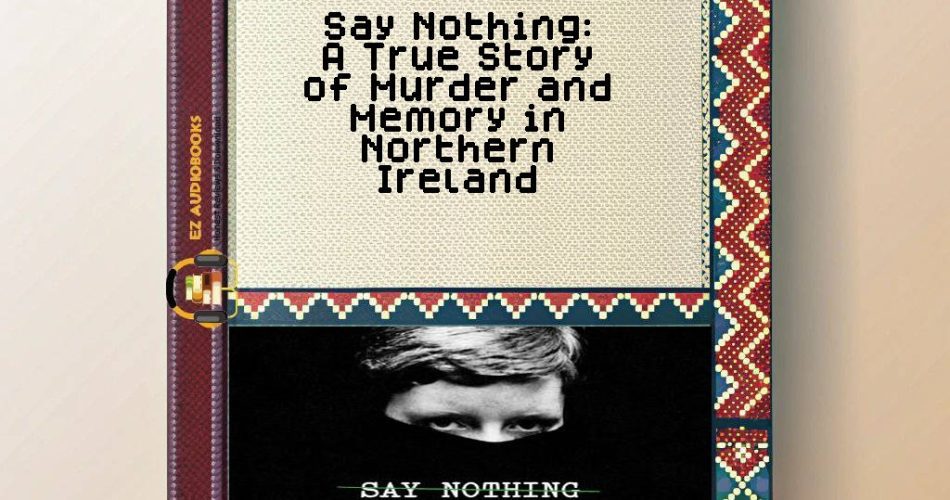Audiobook Sample
Listen to the sample to experience the story.
Please wait while we verify your browser...
- Title: Say Nothing: A True Story of Murder and Memory in Northern Ireland
- Author: Patrick Radden Keefe
- Narrator: Matthew Blaney
- Length: 14:42:12
- Version: Abridged
- Release Date: 26/02/2019
- Publisher: Random House (Audio)
- Genre: History, Non-Fiction, True Crime, Mystery, Thriller & Horror, Europe, True Crime
- ISBN13: 9.78E+12
The moment Matthew Blaney’s voice first crackled through my headphones with that distinct Northern Irish cadence, I was transported. Not to Belfast in 1972, where Jean McConville was dragged from her home by masked intruders, but to a small pub in Derry where I once sat nursing a Guinness while an old man whispered stories of ‘the disappeared’ with the same quiet intensity Blaney brings to this narration. That’s the power of “Say Nothing” as an audiobook – it doesn’t just tell you about The Troubles, it makes you feel the weight of that history in your bones.
Patrick Radden Keefe’s masterful work straddles genres like few books I’ve encountered – part true crime, part historical account, part psychological study of how violence distorts memory. The audiobook format amplifies its most haunting qualities. Blaney’s narration captures the musicality of Belfast speech patterns while maintaining journalistic clarity during complex political explanations. His delivery of Dolours Price’s confession scenes had me pausing my morning walk, stunned by the raw emotion conveyed through subtle vocal tremors alone.
What makes this listening experience extraordinary is how Keefe structures his narrative like a detective story unfolding in reverse. We begin knowing Jean McConville’s fate, then gradually uncover how ordinary people became capable of extraordinary violence. Blaney’s voice becomes our guide through this moral labyrinth – never judging, but letting the horror and humanity of each player sit with uncomfortable intimacy in the listener’s ear.
The audiobook particularly shines in its treatment of the Boston College oral history project tapes, where former IRA members confessed their roles in killings. Blaney’s performance of these sections – the pauses, the swallowed words, the barely audible admissions – creates an almost illicit feeling, as if we’re eavesdropping on secrets meant to die with their speakers. It reminded me of those Oaxacan evenings where the grandmother’s stories would drop to a whisper when revealing family scandals, making us lean in closer.
Keefe’s greatest achievement is showing how The Troubles weren’t just political conflicts but personal tragedies multiplied thousands of times over. The audiobook format makes this visceral – hearing about McConville’s children identifying their mother’s skeleton by a blue safety pin hits differently when spoken aloud. Blaney lets these moments breathe, allowing the full weight to settle before moving on.
Some listeners might find the shifting timelines challenging in audio form, though Blaney’s subtle tonal shifts help orient between eras. The only minor flaw is that certain complex political maneuverings might require rewinding to fully grasp – a small price to pay for such a richly layered listening experience.
Compared to other true crime/history hybrids like “I’ll Be Gone in the Dark” or “Killers of the Flower Moon”, “Say Nothing” stands apart in its refusal to provide easy answers. The audiobook’s power comes from its lingering questions about memory, justice, and what peace really means after such trauma. Blaney’s narration ensures these questions echo long after the final chapter.
With ears still ringing from Belfast’s ghosts,
Marcus Rivera

